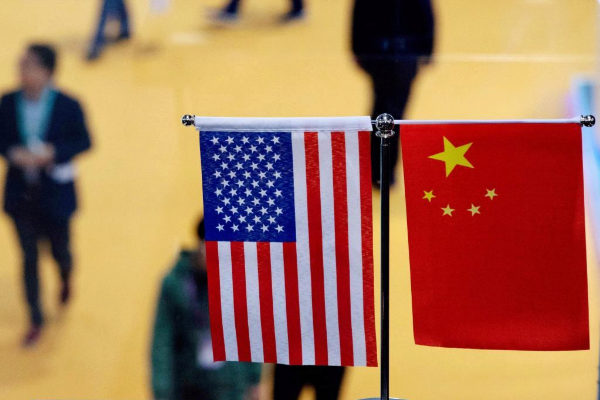- USA v. China. Chronology of an increasingly worrying trade war
- Currency war? Why everyone (including Trump) wants a weaker currency
- China: Create shopping centers, extend schedules ... the plan to accelerate your economic change
- Technology: Huawei will not be able to sell its next mobile with Google applications
Supplementary tariffs on billions of dollars in Chinese products enter into force in the United States on Sunday, while President Donald Trump is determined to reach a trade agreement with Beijing. These additional tariffs of 15% will fall on a portion of some 300,000 million dollars in imported Chinese goods that until now had not been penalized. The new taxes apply from 00.01 hours, local time (6.01 Spanish time).
Trump, in campaign for a second term, has dismissed the numerous warnings for the potential negative repercussions of this measure on the economy and markets. The products reached include foods such as ketchup , some cuts of beef , sausages , fruit , legumes , milk , cheeses , spices and ice cream .
Tariffs will also be increased on sporting goods such as golf clubs , surfboards or bicycles , as well as those affecting musical instruments , sportswear, dishes , furniture and even children's chairs , according to the official list released on Friday.
According to economists at the Peterson Institute for International Economics , a reflection center in Washington , the new tariffs will affect goods for about $ 112 billion , which are added to the more than $ 250 billion of Chinese products that have already been penalized with levies. additional.
A final round of new tariffs, scheduled for December 15, would mean that by the end of the year all of the imports from China (about 540,000 million dollars, if the amount of 2018 is taken into account) will be penalized. Beijing's response plans to increase customs tariffs over US $ 75 billion.
A postponement of the US measure is highly unlikely, especially after Trump ruled out that eventuality on Friday night during a conversation with journalists. However, the president said that contacts had been made between Washington and Beijing. "I can't say anything but we are talking to China," he said. "There are scheduled meetings, calls are being made," he said. "I suppose the September meeting is going on. It has not been canceled. We will see what happens."
So far, China has not confirmed having held interviews or meetings with the US.
Consumer punishment?
Since March 2018, Trump has carried out a tariff war to impose an agreement on Beijing to end business practices that Washington considers unfair, such as the large subsidies that China grants to its state-owned companies or the mandatory transfer of US technology.
The strategy, so far, has not been effective. Beijing is adamant and refuses to negotiate under these threats, despite the fact that the conflict has taken its toll on its economy. A new escalation of tariffs puts the economic growth of the Asian giant at considerable risk, the International Monetary Fund (IMF) has recently warned. And after China, the IMF has said repeatedly, the entire global economy will suffer deterioration.
In the US, the trade war has slowed the expansion of the economy, but Trump claims that his measures against China "are not the problem." According to the president, the fault lies with the monetary policy of the Federal Reserve , which Trump frequently attacks very harshly regarding his handling of interest rates.
Uncertainty about this conflict begins to affect companies that plan investments and also the mood of American consumers. According to an investigation by the University of Michigan , consumer confidence recorded in August suffered the strongest decline since December 2012. "The data indicates that the deterioration of consumer confidence due to tariff practices has been consolidated," Richard Curtin , the economist who runs that bi-monthly survey, reacted on Friday.
The fact that certain typical Chinese products of Christmas shopping do not suffer an increase in tariffs before December 15 suggests that the Trump administration could harbor certain fears about the impact of a new escalation.
These products include mobiles and laptops , game consoles , some toys , among others. In the US, consumption generates 75% of GDP growth .
According to the criteria of The Trust Project
Know more- U.S
- China
- Macroeconomy
- economy
Commercial warAir China closes the Beijing-Hawaii route amid new commercial tensions
Frenazo Countries prepare for the coming recession ... less Spain
Macroeconomics Conflict with the US slows China's international trade

